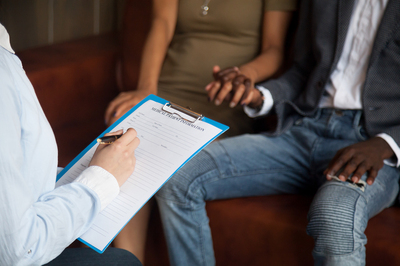
Even the most badly broken relationships still have a chance to heal.
Broken relationships are a key part of the realities of most addicts. The good news? While it may not always seem possible, repairing these relationships is a key part of the journey to healing. Here’s a closer look at where — and how — relationship healing fits into addiction recovery.
From Broken Relationships….
It is common to focus on the physical and mental effects of substance abuse. However, social and emotional health also suffer when addiction enters the picture. Specifically, many addicts lose the ability to maintain healthy connections, a pivotal component in leading a full and happy life.
To understand how to fix broken relationships, we must first understand what healthy relationships are. According to Northwestern Medicine, “A positive relationship can be shared between any two people who love, support, encourage and help each other practically as well as emotionally.”
Specifically, people in healthy relationships do the following:
- Listen to each other
- Communicate in an open and judgment-free way
- Trust and respect each other
- Consistently make time for each other
- Remember the details of each other’s lives
- Engage in healthy activities together
Unfortunately, these are the exact behaviors that break down when substance abuse occurs due to the single-mindedness that takes over with addiction. In their place arise secrecy, trust issues, anger and abuse, enabling, and codependency.
…To Building Better Ones
The ability to repair this damage is important for many reasons, including less stress, better healing, healthier behaviors, and even longer life. It also gives addicts a greater sense of purpose — something that can help keep people in recovery on track.
This begs the question: when so much damage has been done and so much has been lost, is repair even possible? It is, but only when all parties are committed to ending their dysfunctional habits and behaviors and to reinvesting their time and energy into rebuilding positive, mutually beneficial relationships. Healing also means not only acknowledging the damage that was done, but also understanding what can and must be done moving forward to prevent these issues from recurring in the future.

Healing is possible, but it’s a multi-party process.
Cognitive behavioral therapy (CBT), dialectical behavioral therapy (DBT), family therapy and psychoeducation are all integral to the recovery process. This is why finding a substance abuse treatment program that prioritizes the social and emotional elements of recovery — as opposed to merely the physical ones — is so critical.
Such programs help patients by teaching them to understand the nature of addiction, identify triggers, control impulses, cope with stress and improve self-care. They also work with loved ones, too, to re-open lines of communication and set boundaries.
Explains our website, “Recognizing that substance dependency is a family disease, the Harris House IOP dedicates one hour each week for family group. Family and significant other’s involvement in the assessment and treatment process are strongly encouraged and is integrated as a part of treatment.”
This involvement could not be more important and must be carried through after rehab. As a former addict told The Guardian, “Every time that I hear about an overdose, it makes me even more determined to stay clean and sober. It can happen to anyone. That’s why it’s important to maintain a strong support system, work with other addicts and stay connected. It’s when you start becoming complacent with your recovery that things can go downhill.”
While the idea of making up for the repercussions of addiction on relationships may seem like an overwhelming or unlikely one, the truth is that it is possible to rebuild these connections — and substance abuse treatment programs lay the foundation. Call us today to learn about admissions to leading St. Louis drug rehab program Harris House.







